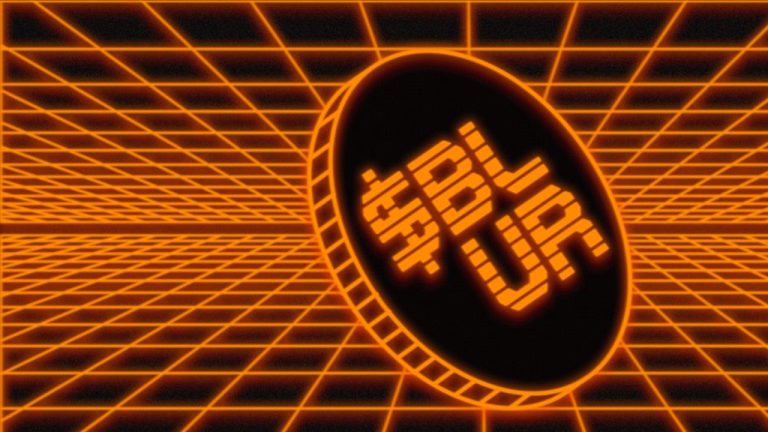 The token will be used to support a new community-driven crypto investigations platform called the Intel Desk. Bubblemaps Looks to Decentralize Blockchain Intelligence Blockchain analytics and investigations firm Bubblemaps will soon launch its own token dubbed BMT to power a new community-driven crypto investigations platform called the Intel Desk, according to an announcement by the […]
The token will be used to support a new community-driven crypto investigations platform called the Intel Desk. Bubblemaps Looks to Decentralize Blockchain Intelligence Blockchain analytics and investigations firm Bubblemaps will soon launch its own token dubbed BMT to power a new community-driven crypto investigations platform called the Intel Desk, according to an announcement by the […]

The Starknet Foundation is warning community members to be on the lookout for scams relating to circulating screenshots of early iterations of a token distribution portal.
The Starknet Foundation has moved quickly to quash speculation around screenshots of early iterations of a distribution portal for the upcoming launch of its native SRTK ecosystem token.
Information shared with Cointelegraph ahead of an announcement on X (formerly Twitter) outlined that the Foundation is still developing plans to distribute the token to certain users, contributors, and investors. The Ethereum layer 2 scaling network previously outlined initial plans for the Starknet token design in July 2022.
We have seen that a preview of an iteration of a possible provisions portal has been shared on social media.
— Starknet Foundation (@StarknetFndn) December 1, 2023
Screenshots disseminated online have been labeled “draft plans that are still under development.” A spokesperson from StarkWare told Cointelegraph that details of official criteria and the provision mechanism of STRK tokens will be shared once the company has finalized them:
“The cut-off for any criteria used to determine who may receive tokens or how many tokens is in the past, and no actions or activity now can impact eligibility in any way.”
The company also stressed that community members should be acutely aware of scams that will look to take advantage of any uncertainty around the STRK token distribution.
Related: Ethereum L2 Starknet aims to decentralize core components of its scaling network
A number of different X users reposted screenshots of the early iterations of the Starknet token provisions portal and further information that alluded to certain requirements to receive STRK tokens.

LimeWire's retro music downloading game revives the look of its platform from the early 2000s and offers players the chance to win crypto.
A new game aimed at reviving the nostalgia of pirating music with the added bonus of crypto rewards has been launched by the former peer-to-peer file-sharing platform turned nonfungible token (NFT) marketplace LimeWire.
On April 13, the historic music-downloading platform, wildly popular in the early 2000s was revived and turned to Web3 in the form of a retro music-downloading game themed on the Microsoft Windows XP operating system.
Players need to enter their email addresses to play the browser-based game that prompts them to search for old early 2000s music and movies to download.
The simulation will provide a list of songs or movies from that era for players to choose to “download” within a time limit. Each simulated download that doesn’t contain a simulated “virus” will yield points to the player.

The scores are entered onto a leaderboard with the top players eligible to receive a distribution of LimeWire’s upcoming ERC-20 token, LMWR.
Related: Music NFTs are helping independent creators monetize and build a fanbase
LimeWire was re-launched in mid-2022 as an NFT marketplace with the aim to become a leading creator content marketplace and membership platform.
The original file-sharing platform was shut down in 2010 after a federal copyright infringement court case and the LimeWire NFT marketplace has no connection to the original platform or its team.
Cointelegraph contacted LimeWire for further details but did not receive an immediate response.
Hodler’s Digest, April 2-8: BTC white paper hidden on macOS, Binance loses AUS license and DOGE news
 The Blur non-fungible token (NFT) marketplace launched its native token this week, and users who were awarded token allotments received “care packages.” Blur tokens began trading at noon on Feb. 14, reaching a high of $5.02 per token. However, the coin has since dropped more than 85% against the U.S. dollar. BLUR Token Launch Records […]
The Blur non-fungible token (NFT) marketplace launched its native token this week, and users who were awarded token allotments received “care packages.” Blur tokens began trading at noon on Feb. 14, reaching a high of $5.02 per token. However, the coin has since dropped more than 85% against the U.S. dollar. BLUR Token Launch Records […]
Davis claimed he received nothing for free from the projects it's alleged he profited from, and the amounts he sold weren’t enough to “dump the price.”
Crypto influencer Lark Davis has refuted new allegations from Twitter “on-chain sleuth” ZachXBT of shilling “low cap projects” to his audience “just to dump them shortly after.”
Davis was responding to a Twitter thread posted by Zach on Sept. 29, containing allegations that he profited over $1.2 million through selling tokens from crypto projects which he was allegedly paid to promote without disclosing.
In a 17-part thread, Zach pointed to eight examples of what is supposedly Davis’ crypto wallet receiving tokens from new crypto projects, with Davis subsequently tweeting or posting a video on them, and then selling the tokens shortly after.
Speaking to Cointelegraph, Zach said he received requests from multiple people who lost money on the tokens shared by Davis asking to “take a closer look” at him.
“Lark managed to dump with size on low cap projects time after time,” Zach said, adding they’ve investigated other crypto influencers, but the alleged amount was “never at this magnitude.”
Zach alleged in the thread that the largest gain to Davis came from receiving 120,000 SHOPX tokens, with Davis tweeting hours later about the project whilst apparently simultaneously selling the tokens, gaining $435,000.
6/ Example 3: $SHOPX
— ZachXBT (@zachxbt) September 29, 2022
a) Mar 31, 2021 at 3:31 pm UTC Lark receives 120k SHOPX
b) Apr 1, 2021 at 12:32 am UTC Lark Tweets about the project
c) Meanwhile Lark is in the process of dumping all his 120k SHOPX for over $435k USD (finishes on 4/2) pic.twitter.com/mc3HvHrCdI
This example along with seven others Zach presented purportedly shows Davis making over $1.2 million in a similar pattern.
“Participating in seed rounds & sharing projects you genuinely like is completely fine as long as it’s done in a transparent manner,” Zach tweeted, adding:
“This is not the case as Lark has a pattern of dumping his discounted launchpad bags right after shills across YT (YouTube), Twitter, & [his] newsletter.”
Cointelegraph requested comment from Davis and was directed to a series of tweets posted late on Sept. 29 in which Davis calls the allegations made by Zach “ridiculous” and provided a response to each example Zach alleged he profited from.
Related: ‘Far too easy’ — Crypto researcher’s fake Ponzi raises $100K in hours
“I got nothing for free,” Davis tweeted to his over one million followers, adding his token sale investments are “always disclosed” on his YouTube channel of 485,000 subscribers and shared with his followers “well before the launch."
For the sales in question, I want to be clear that:
— Lark Davis (@TheCryptoLark) September 29, 2022
1. I disclosed that I was an investor when I initially discussed them
2. I talked about it before the token sale, to give you a chance to get into the sale.
3. I paid for all of these coins, I got nothing for free.
Davis added he was following an investing strategy he teaches, selling the tokens upon launch, which he claims is a common investing practice for token sales. Davis said the amounts he sold were “nowhere near enough to dump the price” of the tokens.
“I teach this concept frequently to you all, none of this should be a surprise if you have been paying attention,” he tweeted. “What you choose to do with my opinions is completely up to you.”